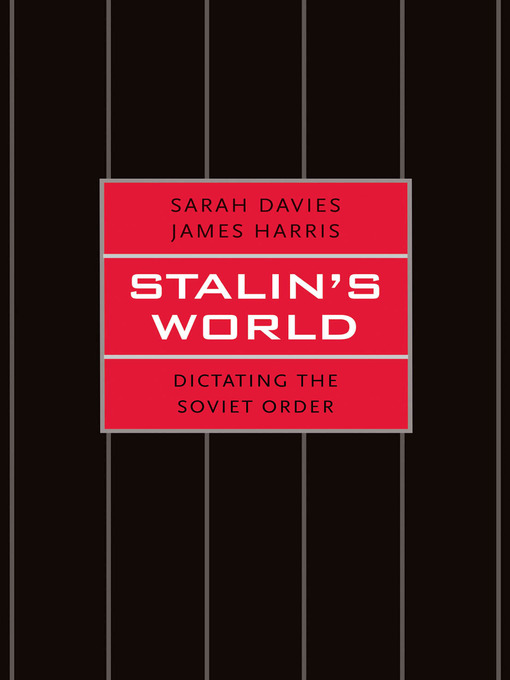Drawing on recently declassified material from Stalin's personal archive in Moscow, this is the first attempt by scholars to systematically analyze the way Stalin interpreted and envisioned his world—both the Soviet system he was trying to build and its wider international context. Since Stalin rarely left his offices and perceived the world largely through the prism of verbal and written reports, meetings, articles, letters, and books, a comprehensive analysis of these materials provides a unique and valuable opportunity to study his way of thinking and his interaction with the outside world.
Comparing the materials that Stalin read from week to week with the decisions that he subsequently shaped, Sarah Davies and James Harris show not only how Stalin perceived the world but also how he misperceived it. After considering the often far-reaching consequences of those misperceptions, they investigate Stalin's contribution to the production and regulation of official verbal discourse in a system in which huge political importance was attached to the correct use of words and phrases..

-
Creators
-
Publisher
-
Release date
October 14, 2014 -
Formats
-
Kindle Book
-
OverDrive Read
- ISBN: 9780300184723
-
EPUB ebook
- ISBN: 9780300184723
- File size: 429 KB
-
-
Accessibility
No publisher statement provided -
Languages
- English
-
Reviews

Loading
Formats
- Kindle Book
- OverDrive Read
- EPUB ebook
subjects
Languages
- English
Why is availability limited?
×Availability can change throughout the month based on the library's budget. You can still place a hold on the title, and your hold will be automatically filled as soon as the title is available again.
The Kindle Book format for this title is not supported on:
×Read-along ebook
×The OverDrive Read format of this ebook has professional narration that plays while you read in your browser. Learn more here.